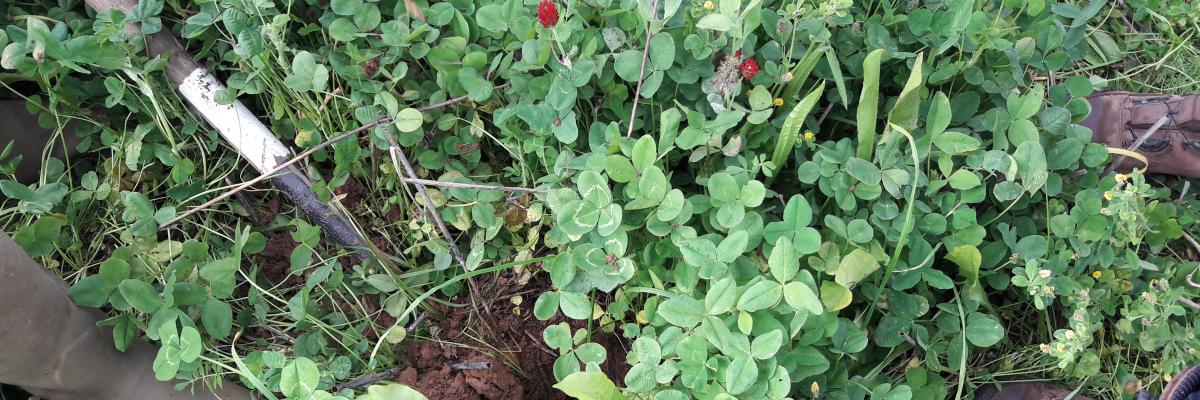

Diverse / Herbal sward mixtures
Organic Management Techniques to Improve Sustainability of Non-Organic Farming
Download the PDF
This abstract was composed as part of a Defra-funded project looking at organic management techniques that could be applied on non-organic farms and help improve sustainability. It describes information on the use of herbal leys and includes practical recommendations that will help you establish them on your farm and other useful information such as the time of year, suitability according to your farming system, and equipment required. It also includes a case study of a farmer who is applying the practice. Potential benefits and potential barriers you would need to consider, financial implications, and how it relates to legislation are also listed. Ley farming is an important element of sustainable farming. The principle of diversity should be extended to legumes, where traditionally farmers have used only one or two key species. More diverse ley mixtures (with several legume and grasses) have advantages over simple mixtures.
More diverse mixtures have advantages over more simple mixtures. Benefits include:
- Greater stability, providing resilience to variable weather, climate and management conditions.
- Combining early and late weed suppression.
- Slower decomposition on incorporation and hence potentially better nitrogen utilisation by following crops.
- Extended forage availability for key insect pollinators.
